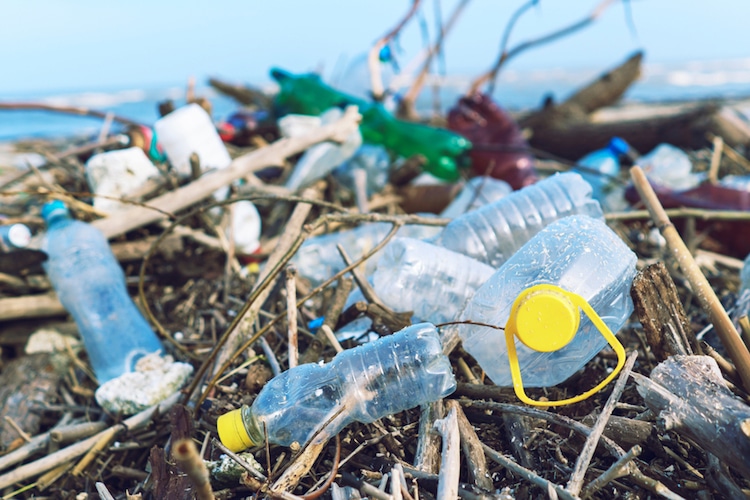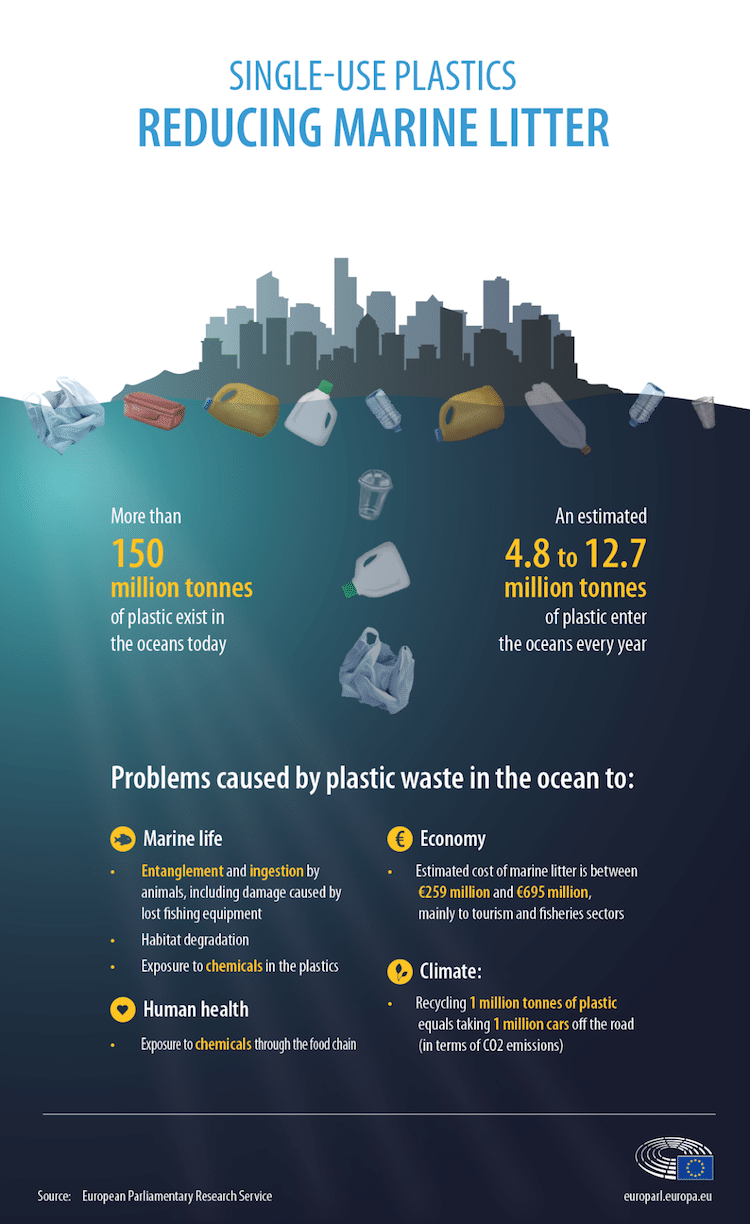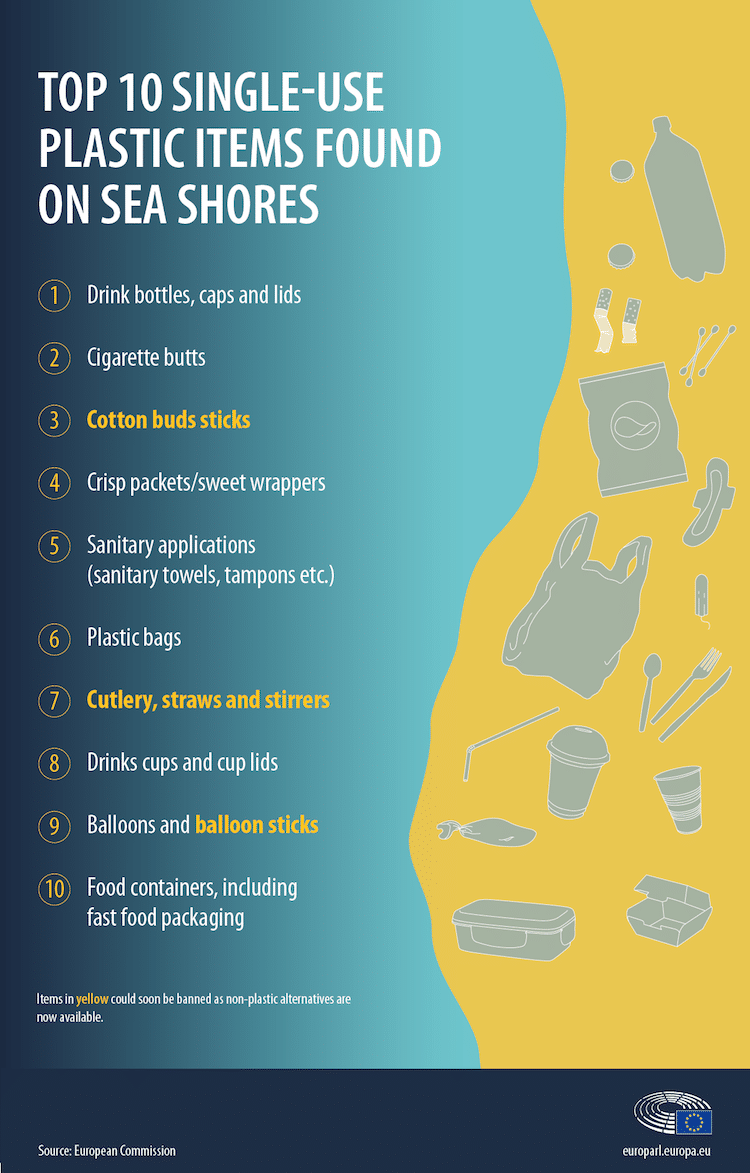
Photo: Larina Marina via Shutterstock
The European Union is saying goodbye to single-use plastic. Members of European Parliament (MEPs) voted through the measure by a wide margin in an efforts to cut down on ocean plastic. The measure was initially proposed by the European Commission in May 2018 and is expected to have no issues passing the final bureaucratic steps before going into place.
As part of the measure, many single-use plastic items will be banned throughout the EU by 2021. This includes plastic cotton buds, cutlery, straws, drink stirrers, and plates. And lawmakers also added oxo-degradable plastic products and polystyrene fast-food containers to the list. Members of the EU will also be required to significantly reduce consumption of food containers and drinking cups by making alternative products available or by ensuring that these single-use items are not provided free of charge.
Additionally, EU states are under obligation to recycle 90% of single-use plastic bottles by 2025. Producers of single-use plastic items like cigarette filters, wet wipes, balloons, and plastic packaging will not only have to cover the costs of waste management and cleanup but also raise awareness about issues of plastic pollution. On its part, member states will be required to educate the public about the harm caused by inappropriate disposal of these items.
The legislation, which passed by a wide margin, comes after the European Commission’s 2016 findings that single-use plastic accounts for 49% of litter on EU beaches. Most of the over 150 million tonnes of plastic in the seas come from uncollected litter and waste on land. Once in the ocean, these plastics can travel large distances and have even been found at deep sea levels.

As more and more countries are enacting bans on single-use plastics, the EU’s measure is a sweeping change that sets a big precedent. Not only are straws and cutlery targeted, but items where “no alternative” exists are also included. For instance, cigarette filters, one of the most common pieces of litter on beaches, must see a 50% reduction in plastic by 2025 and an 80% reduction by 2030. Single-use burger boxes, sandwich boxes, and containers for fruit, ice cream, and desserts are included in a planned 25% plastic reduction by 2025.
The measure also targets fishing gear, which accounts for 27% of marine litter in the EU. Members will need to ensure that at least 50% of lost or abandoned fishing gear that includes plastic is collected yearly. The recycling target for fishing gear is 15% by 2025.
“We have adopted the most ambitious legislation against single-use plastics.” said Frédérique Ries, the MEP who proposed the bill. “It is essential in order to protect the marine environment and reduce the costs of environmental damage attributed to plastic pollution in Europe, estimated at 22 billion euros by 2030.”
Now that lawmakers approved the measure, the European Commission will enter into talks with member states on how to implement the ban. The Commission is hoping to have everything in place so that the finalized rules will be approved by parliament and the European Council prior to elections in May 2019.

h/t: [BBC, Deutsche Welle]
Related Articles:
UK Pledges to Ban Plastic Straws and Other Single-Use Plastics
Costa Rica Pledges to Ban All Single-Use Plastics by 2021 in Bold Stance Against Pollution
New Delhi Officially Bans Plastic Disposables to Help Curb Pollution in India
Two Teenage Girls Led a Successful Campaign Convincing Bali to Ban Plastic Bags
